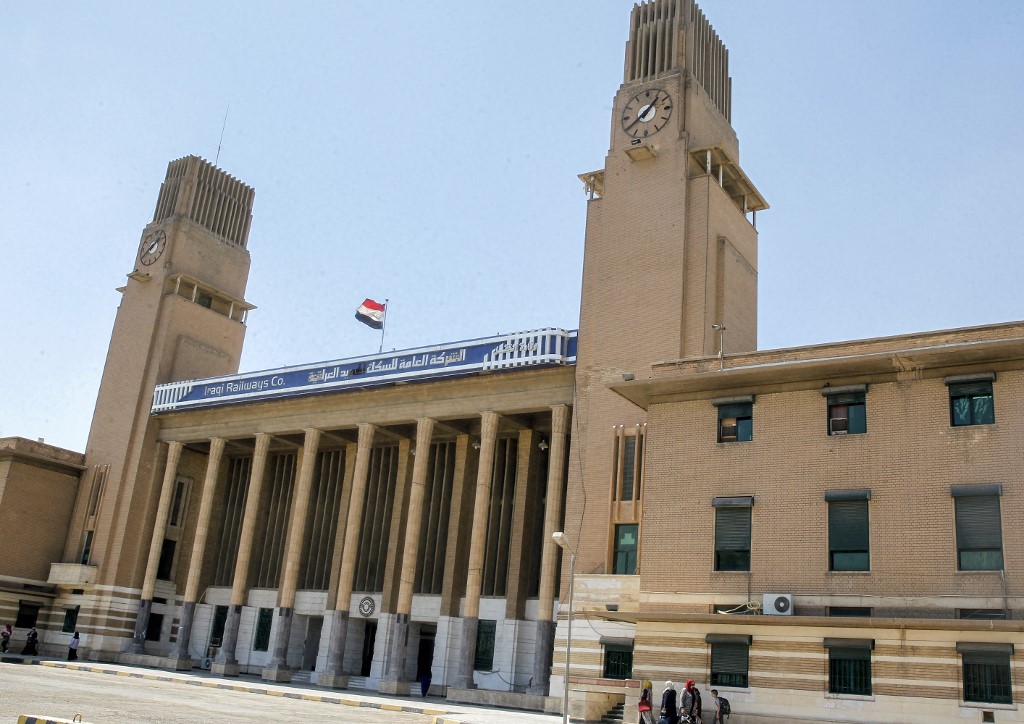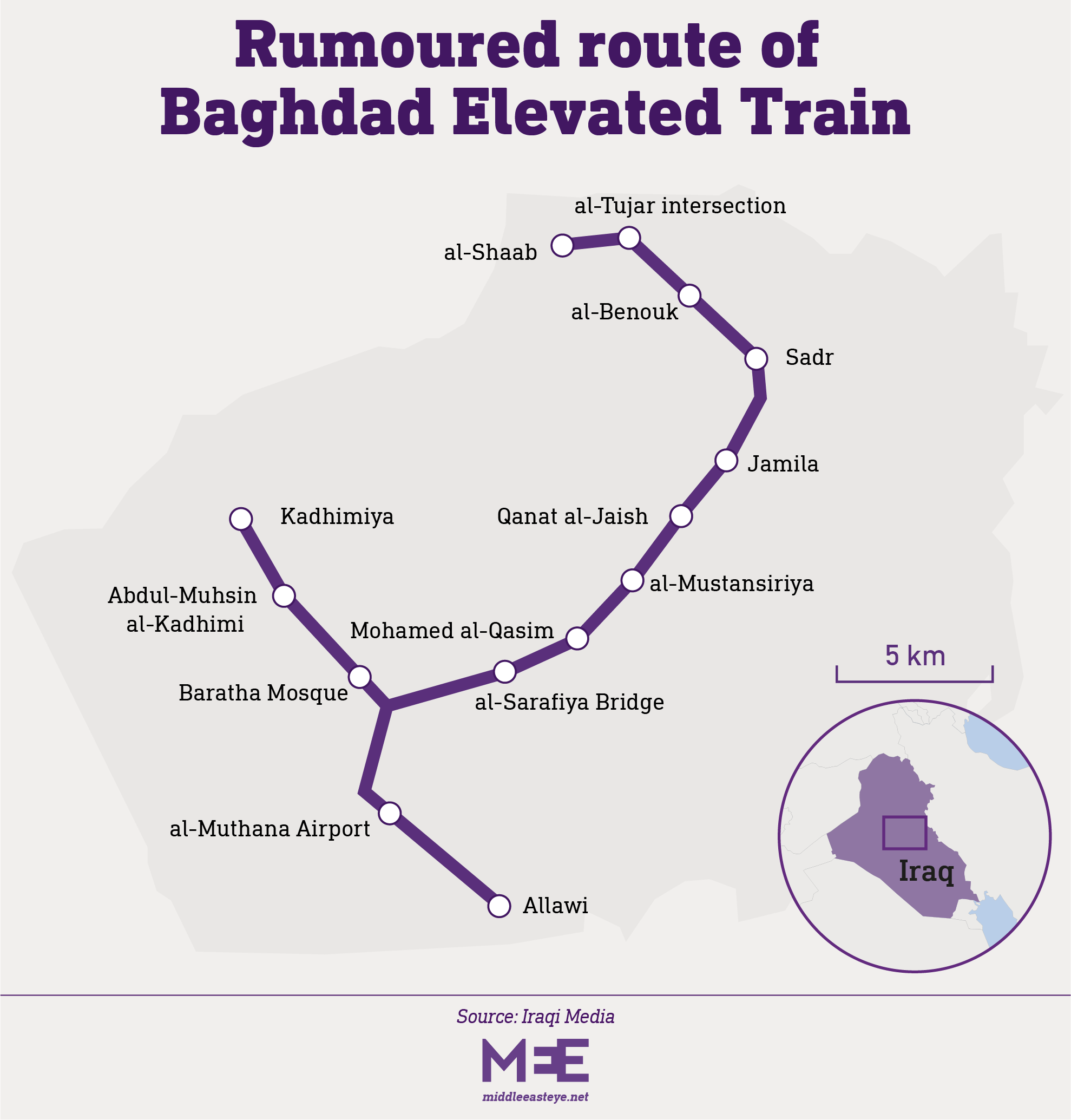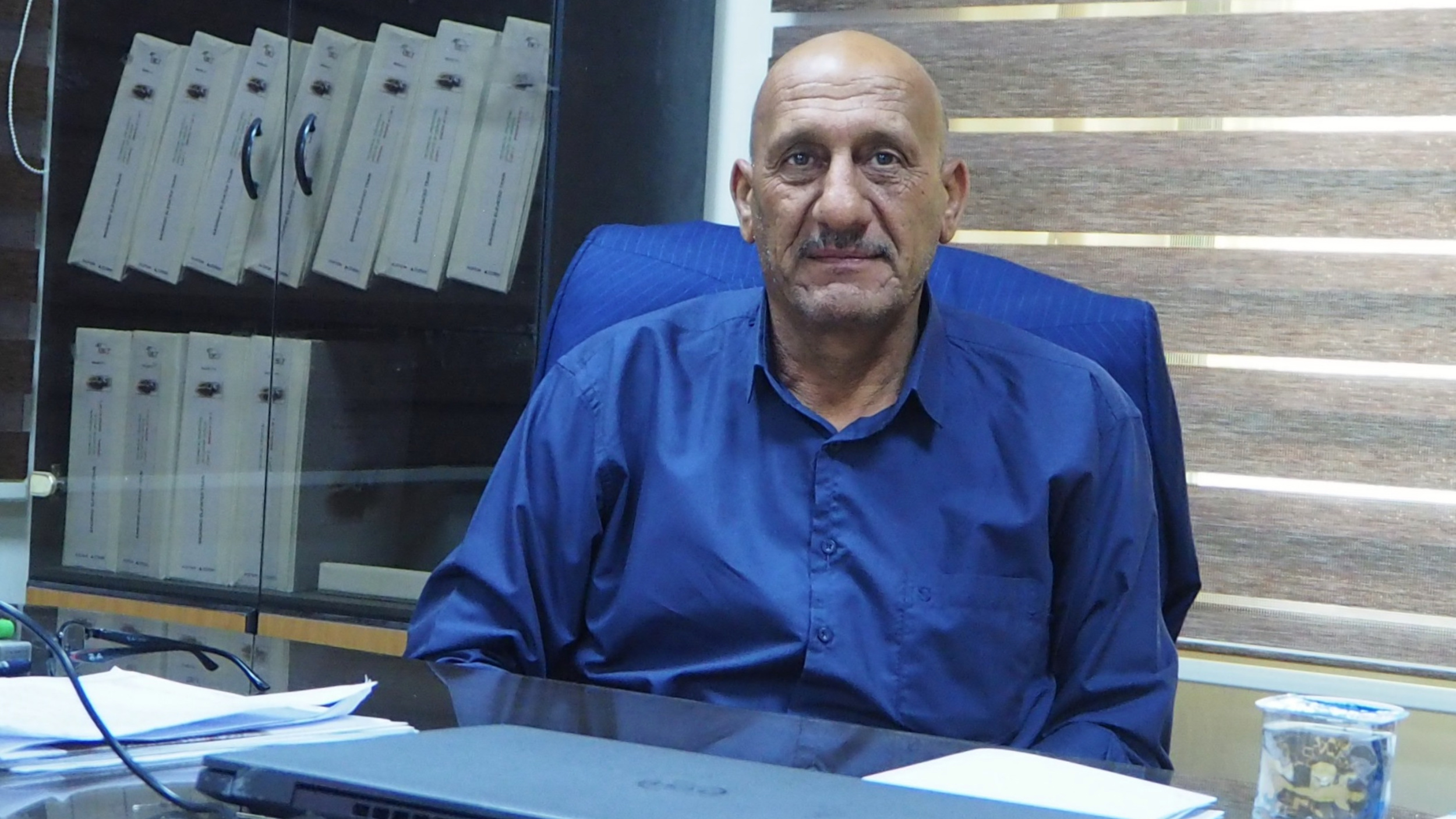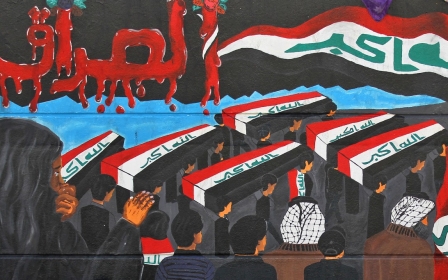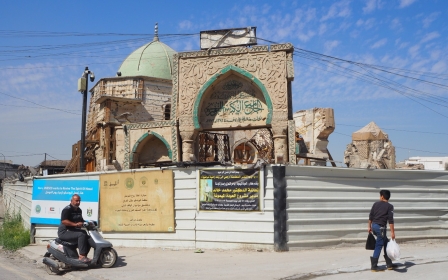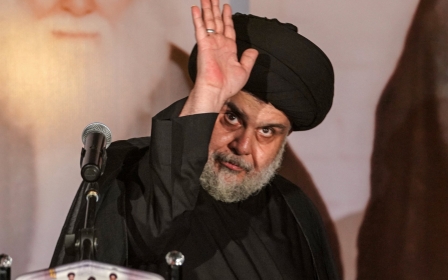Iraq: Proposed light rail could revolutionise travel across congested capital
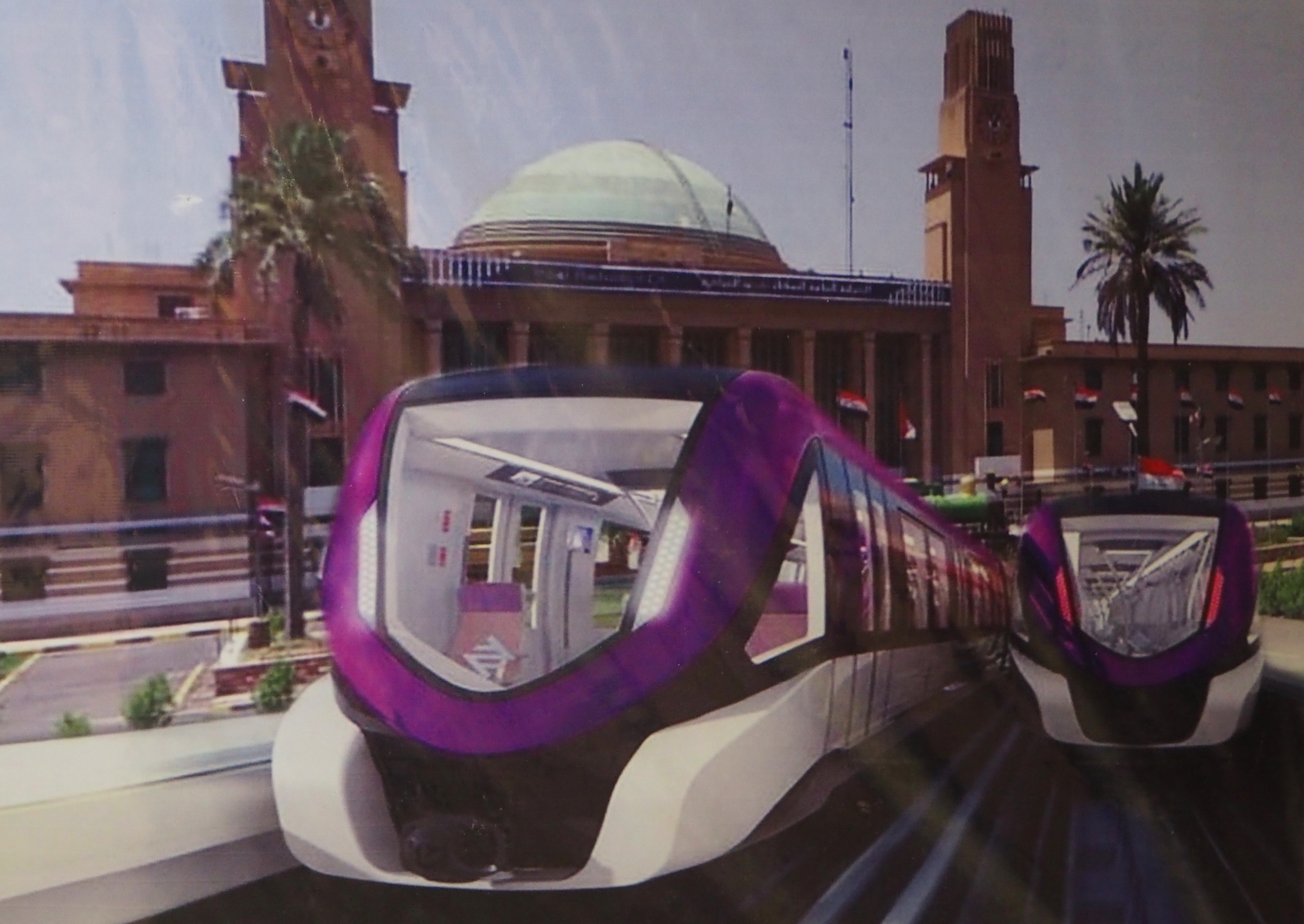
On the ground floor of Baghdad’s striking Central Railway Station, behind long-since closed ticket booths offering fares to Syria and Turkey, a new office has opened.
Fringed with posters depicting modern trains dashing across a palm-fringed urban landscape and ascending from the train station, these show initial designs of how the Baghdad Elevated Train (BET) project might look when completed.
The light-rail project replaces previous plans, floated intermittently since the 2003 US-led invasion of Iraq, to build a metro across the capital.
'This is a first for Iraq. We have different railways but nothing like this, so it's a very new experience for us'
- Sabar Allawi Lahes, IRR
French multinational rail transport company Alstom signed a contract with Iraq in 2013 for feasibility and design studies, but financial crises, the emergence of the Islamic State (IS) and political problems delayed the project, and the technical complexities of building an underground network have seen the project shift to an elevated railway.
The Ministry of Transport BET project portfolio was handed to Iraqi Republic Railways (IRR), a British-created institution that predates the state of Iraq itself, in late 2020. Since then, despite the Covid-19 pandemic, BET has been steadily moving towards a project that may actually become a reality, IRR staff say.
New MEE newsletter: Jerusalem Dispatch
Sign up to get the latest insights and analysis on Israel-Palestine, alongside Turkey Unpacked and other MEE newsletters
"This is a first for Iraq. We have different railways but nothing like this, so it's a very new experience for us," IRR's senior head of engineering, Sabar Allawi Lahes, told Middle East Eye.
"It will start here at the Baghdad Central Railway Station and will reach the borders of Diyala, with 12 stations in between."
He said that after IRR was given the project it employed an engineering company to inspect designs provided by an Alstom-led consortium partnered with South Korea's Hyundai Engineering and Construction. IRR and the Iraqi government have since been negotiating contractual details with the consortium which, Lahes told MEE, was now approaching its final stages.
The $2.5bn project has a five-year timeframe for completion which, if work starts before the end of this year, could see the first passengers being transported across the capital by late 2027.
Lahes said BET would be constructed like a flyover, bridging existing infrastructure to minimise both costs and construction challenges.
"It will follow the original route proposed for the metro, but overground not underground, because it would be very difficult and also very expensive to implement an underground metro system in Baghdad."
The proposed 22km track would start at Baghdad Central Railway Station in the capital's bustling al-Allawi district and reach as far as the al-Shaab suburb lying on the borders of Baghdad and Diyala province in eastern Iraq.
Its planned 14 stations would include Khadamiyah, a popular pilgrimage site; al-Mustansiriya, where many university campuses are located; the airport and residential districts such as Sadr City.
Fast and frequent
BET services are expected to be operated by 24 trains, with a further three back-ups to be deployed when necessary, running between 8am and midnight.
"This is what we are looking at to start with but, of course, if we see that services are popular and trains busy, we should be able to order additional trains to increase services," said Lahes.
With Baghdad"s population estimated to be more than 8.5 million, BET could have a vast potential customer base which, Lahes said, could see the network carrying up to 30,000 passengers an hour at peak times. The light-rail project promises to slash journey times and help ease the daily misery of hours-long commutes.
"It's a really exciting project for us," said one IRR employee, who was not authorised to speak to the press. "And we believe it would start to solve one of Baghdad's biggest problems, which is traffic, especially because the trains will go through university compounds, which are among the city's most congested areas."
Thanks to such congestion, exacerbated whenever security alerts prompt road and bridge closures, many Baghdad residents face daily commutes to work or college of two hours each way, crawling through gridlocked streets.
"It takes me an hour-and-a-half, and some other students as long as three hours, to reach home every day because of the traffic, and everyone is travelling by car at the same time, so a Baghdad metro could be life-changing," said Iraqi Masters student Ali, 24.
"I've visited Turkey and seen how students there can travel 26km in 30 minutes by train and tram, and I would love to see something similar in Iraq. I think Iraqi students would find travelling by train fun and sociable, and they could also use their travel time to study or revise for exams."
Alstom estimates that a journey on BET from Allawi to al-Shaab, which currently takes between two to three hours during rush hour, could take just 23 minutes.
The light trains could also support Iraq's nascent tourism industry, as visitors, many of whom lack the Arabic language skills and local knowledge needed to navigate Baghdad's complex unmarked minibus routes, are currently largely reliant on taxis.
If realised, the project would outshine existing passenger services.
Iraq's rail infrastructure, established by the British in the early 20th century, has suffered decades of neglect, and was severely affected by the 2014 emergence of IS, which destroyed stations, blew up bridges and damaged lines in areas under its control.
However, locomotives daily pulling oil-tank railcars and several passenger services still run between Baghdad and Basra, and cargo trains are back serving the war-battered route to Mosul.
The new Alstom trains that would serve BET are a world away from the 2014 Chinese rolling stock that IRR currently uses on the Basra passenger routes and the ageing French trains that plied the currently stalled Fallujah-Baghdad route.
"These types of train and how to drive them is all completely new to us," said Lahes. "And we have added a point in the contract saying we will need 6,000 Iraqis trained to work on the completed railway, including drivers and engineers."
Minister of Planning Khaled Battal al-Najim has indicated that the whole project could offer direct and indirect job opportunities for as many as 10,000 Iraqis.
State-funded project?
With the rising value of oil helping to strengthen Iraq's economy, it is looking increasingly likely the project could be fully state-funded.
Prime Minister Mustafa al-Kadhimi said in May this year: "The metro project is one of the important projects that Baghdad needs, and it must be started as soon as possible."
Transport Minister Nasser Hussein al-Shibli announced that $2bn had been allocated for the project in the 2022 budget, pending the budget's approval.
"This government recognises the importance of Iraq's railways, and that's why they are pushing forward with the BET project," IRR general director Talib Jawad al-Husseini told MEE.
BET also promises to offer an economical mode of transport for cash-strapped Iraqis. IRR's lucrative rail cargo business has long enabled it to keep its few passenger services competitively priced, and government funding pledges mean the company would not be left trying to claw back costs from future passengers.
"Our department is considered extremely productive. We fund ourselves, especially through deals moving cargo between oil fields and ports, so we are not reliant on government funding for operating services," said Husseini.
'We don't have to think about profits from passengers but only how to provide them with the best services without caring what they pay'
- Talib Jawad al-Husseini, IRR general director
"This means we don't have to think about profits from passengers but only how to provide them with the best services without caring what they pay."
At present unrealised, BET stands as an ambitious project, especially for Iraq, a country known to be mired in corruption and complex political machinations that have left it still unable to form a new government nine months after elections last year.
Ali, the student, expressed some scepticism that the project, which he said sounded great in theory, could become a reality, as many projects floated by successive governments never seemed to materialise.
However, Lahes's message to any naysayers was that Iraq deserved more faith.
"Although we've been through wars and have faced many challenges, we have great natural resources, especially oil, and also a lot of expertise. We are proud of our Iraqi engineers who, working internationally, have finished bigger projects than this," he said.
"We have two great universities - Baghdad and Mosul - which will provide us with their best engineers, and this is a technical project for the benefit of the whole country, so a change of government will not affect it."
He said the IRR expected final contracts for BET to be signed later this year, with initial construction work potentially starting within months.
Lahes said he hoped that, by late 2027, BET could be carrying its first passengers. And, if the new network worked efficiently and proved popular, he said plans for a second elevated train line including the popular central districts of Karrada and Jadiriya could also be considered for implementation.
AbdelHakam Ziyad contributed to this report.
Middle East Eye delivers independent and unrivalled coverage and analysis of the Middle East, North Africa and beyond. To learn more about republishing this content and the associated fees, please fill out this form. More about MEE can be found here.


